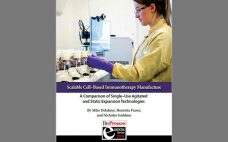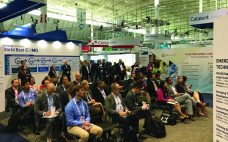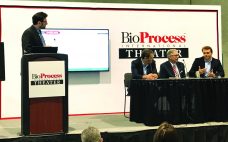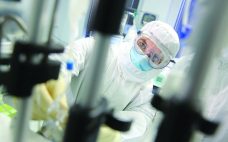Early clinical results indicate that personalized autologous immunotherapies could revolutionize cancer treatment (1). However, challenges lie in the realization of cost-driven, scalable cell therapy (CT) manufacturing strategies (2) for generating sufficient therapies to treat a populace, thereby limiting their translation to public health (3). Primary challenges involve complex needle-to-needle logistics, complexities in closed processing, and high variability in starting cell materials that define the autologous nature of such therapies. Despite barriers in industrial-scale manufacture, public health management already has engaged…
Cell/Gene Therapies
The Effect of Albumin on Viability in Stem Cell Therapy
Stem cell therapies are some of the most cutting-edge and sophisticated therapeutic developments. They offer an attractive alternative approach to more widely used treatments for conditions such as multiple sclerosis, metabolic diseases, cardiovascular disease, liver disease, and cancer. But developers still face challenges, some of which can be addressed by the use of recombinant human albumin. As a long-established ingredient of cell culture media, albumin is well recognized for its ability to facilitate growth of many cell types. The industry is expanding its use of high-quality, fully recombinant, current good manufacturing practice…
Accelerated Development, Manufacturing and Monitoring of Viral Vectors
The goals of process intensification are to enhance production while shortening timelines, lessening contamination and environmental risks to products and operators, and reducing operating footprints. Previous publications from Sartorius Stedim Biotech (SSB) have highlighted key elements of such activities. In this report, the authors extend the scope of this discussion to tools and technologies that enable intensification of viral vector manufacturing processes. The first article summarizes presentations from a 2018 seminar for viral vaccine manufacturers. Three guest presentations highlighted the…
Manufacturing Automation for Patient-Scale Cell Therapies
Nina Bauer, associate director of autologous cell therapy commercial development, Lonza Pharma and Biotech Lonza Emerging Technologies is focusing on cell and gene therapies. Lonza now has expertise in different cell and vector types, constructs, process and assay development, and platform technologies for both clinical and commercial manufacturing. This includes taking a concept through commercial manufacturing. Lonza just opened a site in Houston, TX, and another in the Netherlands, as well as partnering with Nikon in the Asian market. Cell…
Acoustic Cell Processing: An Innovation in Cell-Therapy Manufacturing
Richard Grant, chief product officer, FloDesign FloDesign is experimenting with applications of acoustics to cell-therapy manufacturing. An electric transducer is attached to a closed-flow system and generates forward propagating waves that are reflected as backward propagating waves. This sets up three-dimensional standing waves within the cell (flow) chamber. When cells enter the flow channel, acoustic forces cause then to cluster within the nodes of those standing waves, ultimately settling out through enhanced gravitational means. Acoustic cell processing is scalable and…
Feeding the Demand for Cell and Gene Therapy Production
Moderator Dan Stanton, with Ohad Karnieli, Alan Moore, and David Brindley Moderator Dan Stanton introduced the second roundtable of Tuesday morning by commenting on the recent spate of approvals for CAR-T cell and gene therapies. With large biopharmaceutical and biotechnology companies devoting scientists and funds toward these next-generation therapies, contract manufacturing organizations (CMOs) also are investing in opportunities to expand capacity and expertise. As the panelists introduced themselves, they raised two key points for discussion: The contracting model for advanced…
Thinking Outside the Bag: Single-Use Technology Can Drive Innovation at the Benchtop Scale
Cristy Botens, product manager in bioprocessing, Distek Innovation is important, Botens began, and the focus should be on patients. Every innovation means that medicine gets to patients faster or has fewer side-effects. Recent pharmaceutical innovations include the first new Lupus treatment approved in 50 years, a gene therapy cure for inherited blindness, gene therapies for rare diseases, new chimeric antigen receptors on T cells (CAR-T) clinical trials (over 180 trials now), personalized cell therapy, and a vaccine that prevents cervical…
Demonstrating Scalable T-Cell Expansion in Stirred-Tank Bioreactors
Emerging cell therapies have excited the pharmaceutical industry because they indicate potential new pathways to treat some of the most life-threatening diseases. T-cell therapies currently are the flagship technology in cell therapy with recent US FDA approvals of Novartis’ Kymriah (tisagenlecleucel) and Gilead’s Yescarta (axicabtagene ciloleucel) treatments. Those therapies and others still in development use peripheral blood isolated lymphocytes (PBLs) modified with chimeric antigen receptors (CARs) or modified T-cell receptors (TCRs) to trigger the innate cytotoxic response of these immune…
Cost Analysis of Cell Therapy Manufacture: Autologous Cell Therapies, Part 2
In part 2, we continue to analyze manufacturing costs of an autologous cell therapy. A typical process involves the expansion and activation of cells derived from a single patient, which is currently very labor-intensive. To date, there is little published information on overall production costs (1). In part 1, we used a software modeling platform to identify opportunities for potential cost savings. We developed a baseline model of a cell therapy manufacturing process using the production of autologous dendritic cells…
Cost Analysis of Cell Therapy Manufacture: Autologous Cell Therapies, Part 1
Cell therapies are a growing area of interest for the treatment of a number of indications such as neurological, cardiovascular, and ophthalmological maladies that are refractory to other more conventional drug therapies. A number of cell-based therapy products currently are undergoing clinical trials. The most common target is oncology, which represents 46% of all cell-based therapies through the use of traditional blood-cell and immune-cell–based therapies. For treatment of various cancers, immune cells, lymphocytes (natural killer cells, T cells, and B…










